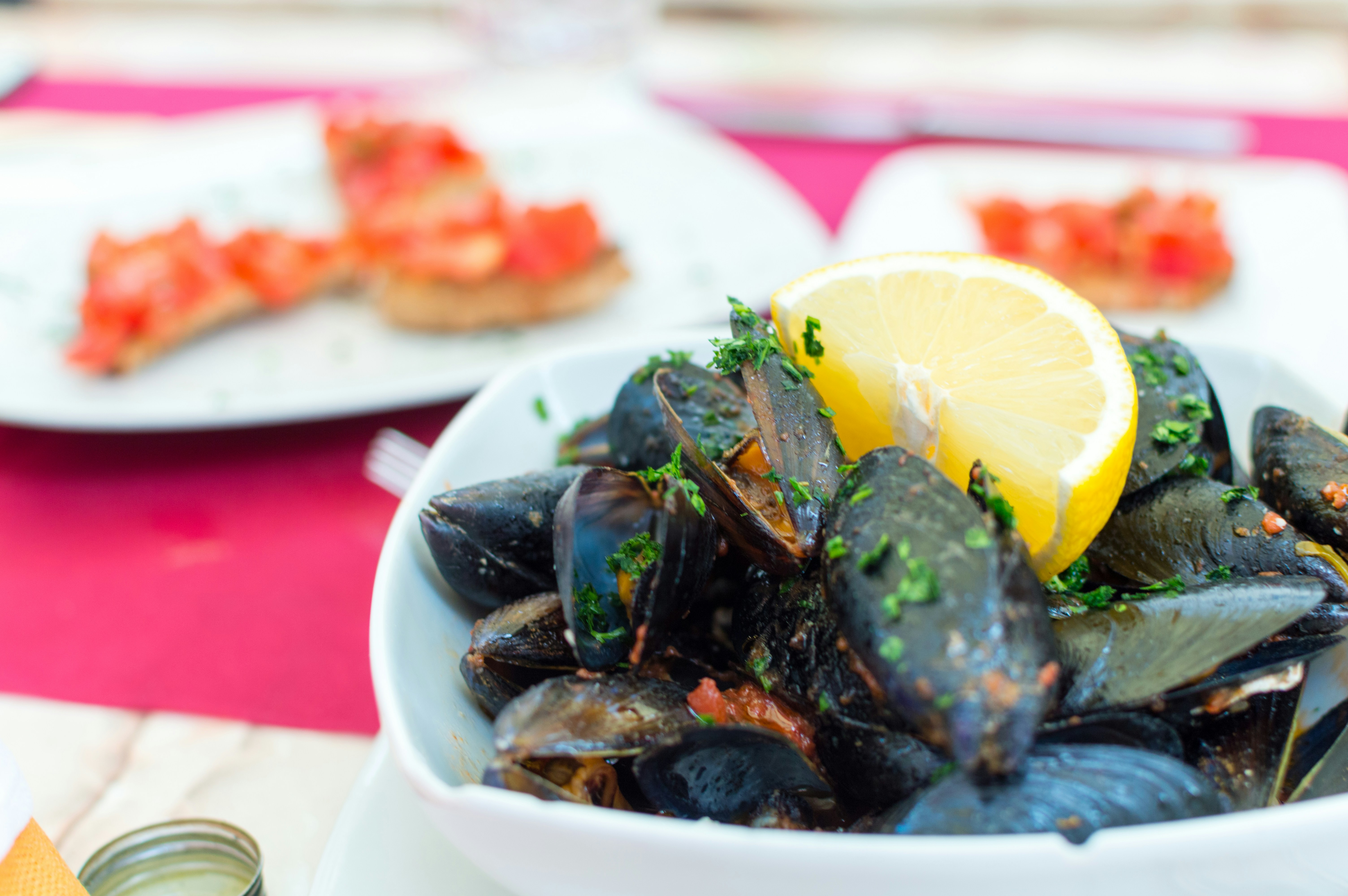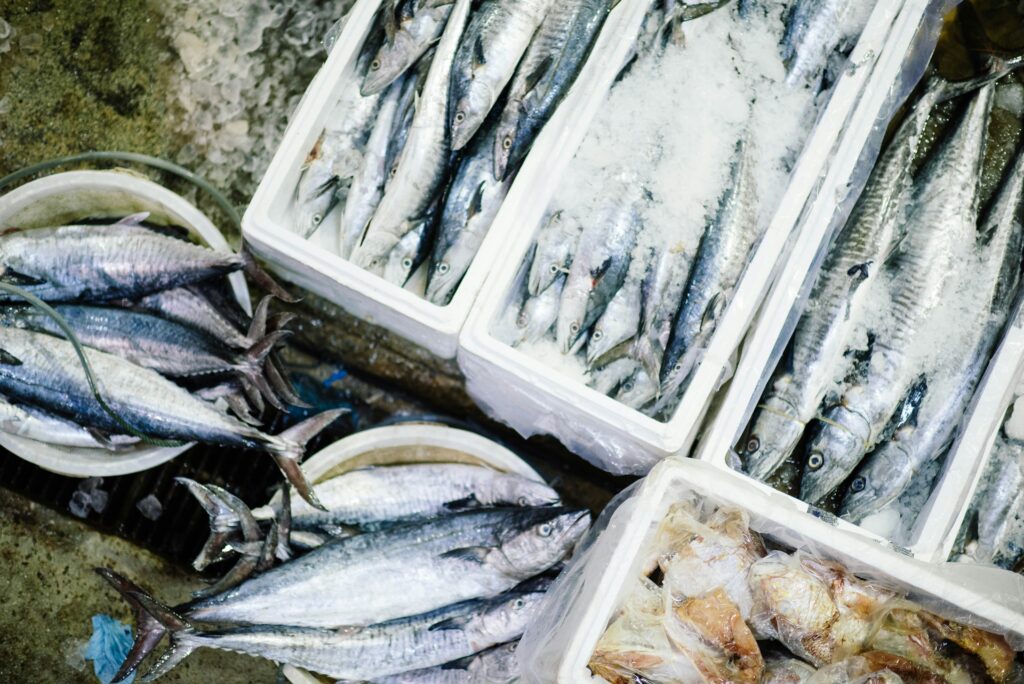Foods High In Taurine: 2025’s Top Choices
So your looking for foods high in taurine?
Lets first talk about what it is.
Taurine, a vital amino acid, plays a crucial role in maintaining our overall health and well-being. Found in many bodily tissues, taurine is essential for cellular hydration, bile salt formation, and nervous system health. It acts as a potent antioxidant, protecting cells from damage and supporting the body’s natural detoxification processes.
As a conditionally essential amino acid, taurine is not always produced by the body in sufficient amounts, making dietary sources crucial for optimal health. A deficiency in taurine can lead to a range of health issues, from cardiovascular problems to vision impairment. In this article, we’ll delve into the importance of taurine in our diet and explore how to ensure we’re getting enough of this vital nutrient.
Key Takeaways: Unlocking the Benefits of Taurine
Here are the key points to remember about taurine:
- Natural Sources: Taurine is naturally found in animal-based foods such as meat, fish, and shellfish.
- Plant-Based Limitations: Plant-based foods typically lack taurine, making it essential for vegetarians and vegans to consider supplementation.
- Health Benefits: Taurine supports:
- Heart Health: By reducing blood pressure and cholesterol levels.
- Muscle Function: By improving athletic performance and reducing muscle damage.
- Brain Performance: By enhancing focus, concentration, and mood.
By incorporating taurine-rich foods or supplements into your diet, you can unlock these benefits and support overall health and well-being.
Understanding Taurine
Definition and Roles
Taurine is a conditionally essential amino acid, meaning that while the human body can produce it, there are certain circumstances under which it must be obtained through the diet. Taurine plays a crucial role in various bodily functions, including:
- Hydration: Taurine helps regulate fluid balance and maintain cellular hydration.
- Bile Production: Taurine is involved in the production of bile salts, which aid in fat digestion and absorption.
- Antioxidant Functions: Taurine has antioxidant properties, protecting cells from damage caused by free radicals.
Why is Taurine Important?
Taurine’s importance extends to various aspects of our health, including:
- Cardiovascular Health: Taurine has been shown to lower blood pressure, reduce cholesterol levels, and improve overall cardiovascular function.
- Athletic Performance: Taurine supplementation has been linked to improved athletic performance, increased endurance, and reduced muscle damage.
- Nervous System Development and Function: Taurine is essential for the development and maintenance of the nervous system, and deficiencies have been linked to neurological disorders.
In summary, taurine is a vital amino acid that plays a crucial role in maintaining our overall health and well-being. Its importance extends beyond its individual functions, as it has a significant impact on our cardiovascular health, athletic performance, and nervous system development.
Top Foods High in Taurine
Shellfish
- Scallops, mussels, and clams are all rich in taurine, with a single serving providing up to 300-400 mg of this essential amino acid.
- The high taurine content in shellfish contributes to their numerous health benefits, including improved heart health, reduced inflammation, and enhanced antioxidant defenses.
- shellfish are incredibly mineral dense foods and should be included weekly if possible. I am not very concerned about mercury concerns as mercury is well balanced by the other minerals

Fish
- Tuna, salmon, and mackerel are excellent sources of taurine, with a 3-ounce serving providing around 200-300 mg.
- These fish are not only rich in taurine but also packed with omega-3 fatty acids, which support heart health, reduce inflammation, and promote brain function.

Dark Meat Poultry
- Turkey and chicken (dark meat) are good sources of taurine, with a 3-ounce serving providing around 100-200 mg.
- Dark meat poultry contains higher amounts of taurine compared to white meat, making it a better choice for those looking to boost their taurine intake.
Beef and Lamb
- Beef and lamb are rich in taurine, especially organ meats like liver and heart, which contain high concentrations of this amino acid.
- A 3-ounce serving of beef or lamb can provide up to 100-200 mg of taurine.
Seaweed
- Seaweed is a rare plant-based source of taurine, making it an excellent option for vegetarians.
- Some types of seaweed, such as wakame and hijiki, contain up to 100-200 mg of taurine per 3-ounce serving.
Dairy Products
- Cow’s milk and dairy derivatives contain minimal amounts of taurine, with a cup of milk providing around 5-10 mg.
- While dairy products are not a significant source of taurine, they can still contribute to overall taurine intake when consumed as part of a balanced diet.

Taurine for Vegetarians and Vegans
Why Plant-Based Diets Lack Taurine
Taurine is an amino acid that is primarily found in animal-based foods, making it a challenging nutrient for vegetarians and vegans to obtain through their diet. Most plant-based foods, including fruits, vegetables, grains, and legumes, do not contain significant amounts of taurine. This is because taurine is synthesized in the body from the amino acids cysteine and methionine, which are more abundant in animal-based foods.
Alternative Sources
Fortunately, there are alternative sources of taurine that vegetarians and vegans can incorporate into their diet:
- Seaweed: Seaweed is a natural, plant-based source of taurine. Certain types of seaweed, such as wakame and hijiki, contain high amounts of taurine. Vegetarians and vegans can add seaweed to their meals or use it as a seasoning to boost their taurine intake.
- Taurine Supplements: For those who struggle to get enough taurine from their diet, supplements can be a convenient solution. Taurine supplements are available in various forms, including capsules, tablets, and powders. Vegetarians and vegans can consult with a healthcare professional to determine the appropriate dosage and form of taurine supplementation for their individual needs.
By incorporating these alternative sources of taurine into their diet, vegetarians and vegans can ensure they are getting enough of this essential amino acid to support their overall health and well-being.
Health Benefits of Taurine
Cardiovascular Health
Taurine plays a crucial role in maintaining cardiovascular health by:
- Supporting heart muscle function and reducing blood pressure
- Reducing the risk of heart disease by improving lipid profiles and preventing platelet aggregation
Athletic Performance
Taurine is essential for athletic performance as it:
- Enhances muscle contraction and endurance
- Reduces exercise-induced oxidative stress, thereby preventing muscle damage and improving recovery
Brain and Nervous System Support
Taurine is vital for brain and nervous system support as it:
- Aids in brain development and cognitive performance
- Provides neuroprotective benefits for aging populations, reducing the risk of neurodegenerative diseases
Eye and Hearing Health
Taurine is important for eye and hearing health as it:
- Maintains retinal health and prevents vision loss
- Supports auditory function and prevents hearing loss
Overall, taurine’s health benefits are far-reaching, and its importance cannot be overstated. By incorporating taurine-rich foods or supplements into your diet, you can support your overall health and well-being.
How to Incorporate Taurine-Rich Foods into Your Diet
Balanced Diet Tips
Incorporating taurine-rich foods into your diet can be easy and delicious. Here are some tips to get you started:
- Meal prep: Plan your meals in advance and include taurine-rich foods like shellfish, fish, and seaweed. Grill or bake them with herbs and spices for added flavor.
- Pairing foods: Pair taurine-rich foods with other nutrient-dense foods to enhance absorption. For example, pair grilled tuna with roasted vegetables like broccoli and sweet potatoes.
Recipes and Meal Suggestions
Here are some recipe ideas to get you started:
- Grilled Tuna with Roasted Vegetables: Marinate tuna steaks in a mixture of olive oil, lemon juice, and herbs, then grill and serve with roasted vegetables like asparagus and Brussels sprouts.
- Shellfish Pasta with Garlic and Olive Oil: Cook shellfish like shrimp and scallops with garlic, olive oil, and herbs, then serve over whole-grain pasta.
- Seaweed Salad with Sesame Dressing: Mix together seaweed, chopped vegetables like cucumbers and carrots, and a sesame-based dressing for a healthy and refreshing salad.
By incorporating these taurine-rich foods into your diet, you can support your overall health and well-being.

FAQs About Taurine
Can Taurine Be Harmful in Excess?
Taurine from food sources is generally considered safe. However, excessive supplementation should be monitored, as high doses can interact with certain medications and exacerbate underlying health conditions.
Is Taurine Supplementation Necessary for Everyone?
Typically, taurine supplementation is not required for individuals with a balanced diet that includes taurine-rich foods. However, vegans or those with specific deficiencies may benefit from supplementation.
How Does Taurine Differ from Other Amino Acids?
Taurine is unique in that it is not used to build proteins like other amino acids. Instead, it plays a vital role in various physiological functions, such as cardiovascular health and antioxidant defenses.
Can Energy Drinks Provide Sufficient Taurine?
While energy drinks do contain taurine, they are not a recommended source due to their high sugar and caffeine levels. It is better to obtain taurine from natural food sources or supplements to avoid potential negative side effects.
Conclusion
In conclusion, taurine is a vital amino acid that plays a crucial role in maintaining overall health. From supporting heart health and athletic performance to promoting brain function and eye health, taurine’s benefits are far-reaching. Fortunately, incorporating taurine-rich foods into your diet is easier than ever, with a variety of options available, including shellfish, fish, meat, and even plant-based sources like seaweed.
By maintaining a balanced diet that includes these taurine-rich foods, you can naturally meet your body’s taurine needs and support your overall health and well-being. So, make sure to include taurine-rich foods in your meal planning and reap the benefits of this essential amino acid.
Discover more from Maxwell Person
Subscribe to get the latest posts sent to your email.